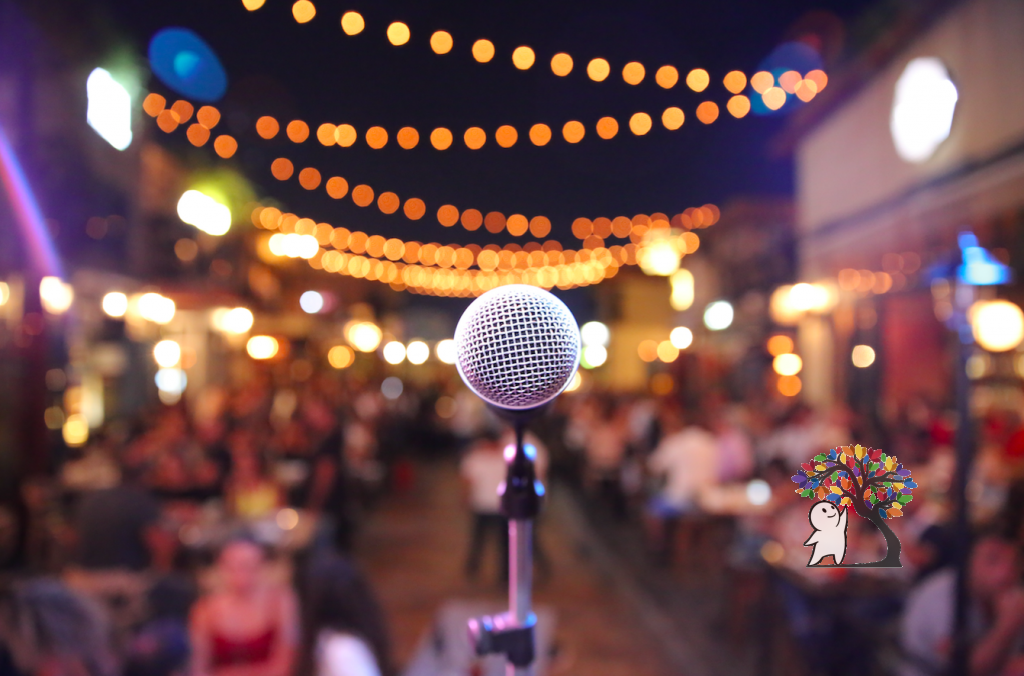What Christmas Does to Your Brain


For your brain? It’s best to let the Christmas carolers sing.
Joy to the world! It’s Christmas time! The holidays are here. And here at Psych2Go? There’s plenty of cheer! …And psychology videos.
Speaking of psychology and Christmas, have you ever wondered what psychological effects Christmas can have on your brain? It’s a time of both chaos and comfort. For many, the holidays are a time when families come together and spread the love and cheer. Or others can view it as a stressful time when families come together and spread, well… old rivalries and tears. Christmas can make others feel light-hearted when the spread joy by decorating and giving. But to some, the holiday music full-blast twenty-four seven at the mall? Not their cup of eggnog.
Turns out, according to psychological research, Christmas can have more of an effect on your brain than you think. So, here are just a few of the things that happen to your brain when the bright red and green holiday carpet is rolled out.
- Do You Have a Christmas Spirit Network in Your Brain?

In one psychological study, researcher attempted to localize the ‘Christmas spirit’ in the human brain by using magnetic resonance imaging. Ten of their subjects had positive feelings towards Christmas and celebrated the holidays, the other ten had a neutral feeling and didn’t celebrate Christmas. The researchers showed Christmas themed photos and then non-Christmas related photos to the subjects.
According to their fMRI scans, there was increased brain activity in the sensory motor cortex, the premotor and primary motor cortex, and the parietal lobule when those who celebrated Christmas viewed Christmas-themed photos. These brain structures have been linked to self-transcendence, spirituality, recognition of facial emotions and somatic senses as well as emotional processing and response to emotions of others. Basically, certain aspects of Christmas relieve stress, improve our emotional response, and boost positivity! The researchers concluded that there is indeed a Christmas spirit network in our brain – that is if you celebrate it – but that there is also much more research needed to discover what it is that makes Christmas so magical.
2. Hallucinating Bing Crosby Singing “White Christmas”
Do… do you hear that? It’s the musical sound of department stores once again playing the Christmas classic: “White Christmas” …for the fifty-seventh time. – MAKE IT STOP!
Some people absolutely love Christmas music, and will listen to it months in advance in preparation for the holiday season. Are you guilty of this? …I… may be. But to others, hearing Christmas music so often can cause those songs to play on repeat in their heads for the whole holiday season. And even… gulp… New Years.
In one experiment, forty-four participants where tasked with listening to white noise, instructed to press a button when they heard a recording of Bing Crosby’s “White Christmas” play within the noise. Thirty-two percent of participants pressed the button at least once. According to the research, the participants who did press the button, “had higher scores on fantasy proneness and the Launay–Slade Hallucination Scale (LSHS) compared to participants without hallucinatory reports. Logistic regression suggested that fantasy proneness is a better predictor of hallucinatory reports than are LSHS scores.” Meaning, the more imaginative we are, the more likely we are to hear Bing Crosby singing in the midst of static. Or, they really need to stop overplaying that song at shopping malls.
3. Giving Gifts Makes You Happier Than Receiving Them

Do you have someone to shop for this Christmas? Or maybe you are crafting them something special and true from the heart. Well, it’s best to get gifting! A 2008 study found that spending money on others instead of yourself, increases happiness.
Participants of the study had to rate their happiness at the beginning of the day, then each was given an envelope with money – containing five dollars to twenty dollars. The participants had to spend the money until 5:00pm that day. Participants were split into different groups – one which spent their money on a bill, another an expense, and one a gift for themselves. The last group had to use their money to purchase a gift for someone else.
When asked to report their happiness at the end of the day, despite the amount of money received, those who bought gifts showed the greatest improvement in happiness for the day. So, next time you decide between buying a gift for yourself or someone else? Ask yourself, what will make you happier? That cute and cozy sweater?! Or… that Santa hat your brother wanted.
Choose the Santa hat. Choose the Santa hat. It’ll only improve the Christmas Spiritual Network in your brain!
4. Singing Christmas Carols Can Improve Your Psychological Well-being

You get a knock on your door. To your surprise, it’s not the twelve dozen order of donuts you ordered a half hour ago, – yes, they deliver – but it’s a bundled group of Christmas carolers. “Oh boy.” You remark with distaste. You might as well say ‘Bah humbug!’ They’re just trying to spread some holiday cheer! Or, perhaps you say ‘oh boy!’, delighted by their carols as you attempt to sing your way through Jolly Old Saint Nicholas. Ah, what a classic.
Well, if it comes to bettering your mental health, I’d go with the second option and leave the ‘Bah humbugs’ inside. According to a study from Michigan, singing carols together can not only increase social bonds between those who join along, but it can improve your physical and psychological well-being as well!
In the study, scientists explored the social flow of group singing as well as the neurochemistry when participants sing together. Their findings seem to show that when we sing with others, our stress levels decrease, and social bonding improves. When subjects sang in a group, researchers found a decrease of adrenocorticotropic hormone – or ACTH – a hormone that serves as a marker of arousal and stress. But let’s say you really want to bond with your new holiday crush? Well, try improvised singing! The study also found an increase in oxytocin – a hormone linked to social bonding in humans – when participants took part in improvised group singing.
So go ahead and sing along, they may not be frosted donuts at your door, but those carolers are there to better your mental well-being and spread Christmas cheer! Just whatever you do, don’t sing “White Christmas”.
Oh Bing Crosby, it’s already New Years!
Written by Michal Mitchell
Follow me on Instagram and Twitter at @jackycoocoo for more articles, celebrity interviews, original poetry and more.
Check out “What Your Favorite Food Says About You, According to Research” or my other articles here.
References
- Keeler, Jason R. MT-BC, et al. “The Neurochemistry and Social Flow of Singing: Bonding and Oxytocin.” Frontiers, Frontiers, 7 Sept. 2015, www.frontiersin.org/articles/10.3389/fnhum.2015.00518/full.
- Hougaard, Anders, et al. “Evidence of a Christmas Spirit Network in the Brain: Functional MRI Study.” The BMJ, British Medical Journal Publishing Group, 16 Dec. 2015, www.bmj.com/content/351/bmj.h6266.
- Dunn, Elizabeth W., et al. “Spending Money on Others Promotes Happiness.” Science, American Association for the Advancement of Science, 21 Mar. 2008, science.sciencemag.org/content/319/5870/1687.long.
- Merckelbach, Harald, and Vincent van de Ven. “Another White Christmas: Fantasy Proneness and Reports of ‘Hallucinatory Experiences’ in Undergraduate Students.” Journal of Behavior Therapy and Experimental Psychiatry, Pergamon, 19 Oct. 2001, www.sciencedirect.com/science/article/abs/pii/S0005791601000295?via=ihub.
- Ocklenburg, Sebastian. “Five Scientific Findings About Christmas.” Psychology Today, Sussex Publishers, 23 Dec. 2019, www.psychologytoday.com/us/blog/the-asymmetric-brain/201912/five-scientific-findings-about-christmas.
- Dean, Jeremy. “The 12 Psychology Studies of Christmas.” PsyBlog, 24 Dec. 2014, www.spring.org.uk/2009/12/the-12-psychology-studies-of-christmas.php.



Responses